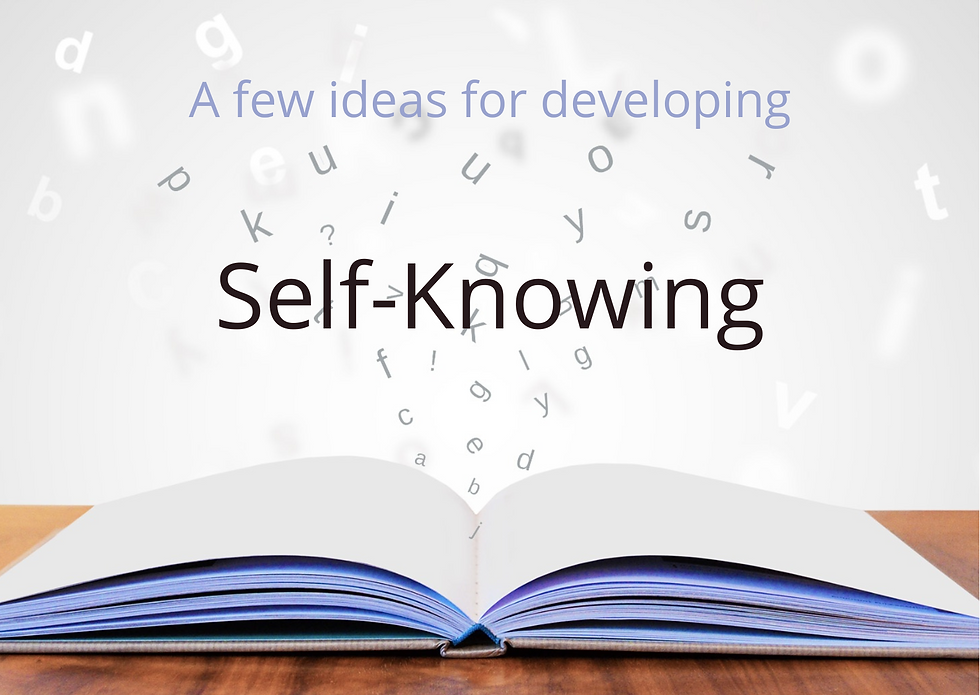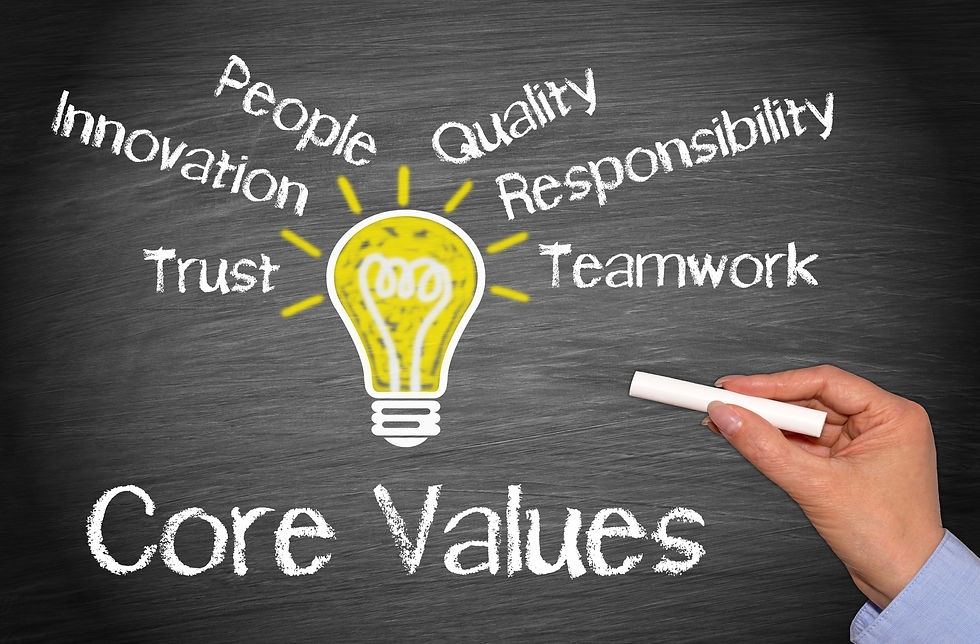Developing Self-Knowing
- Mary Ely
- Oct 19, 2022
- 4 min read
RocheMartin defines Emotional Intelligence by a set of 10 competencies and this is one in a series of blogs covering each one.

Self-Knowing, means you understand how you think AND you understand how the way you think impacts how you feel, your body language, your choices, your behaviour, your results and the impact you have on the people and things around you.
The 3 components of Self-Knowing are
Emotional awareness
Being able to recognise your emotions/how you are feeling.
Understanding how different emotions affect your choices, opinions and judgements.
Non-verbal communication
Understanding the way that how you think and feel impacts your facial expressions and body language.
Behavioural awareness
Understanding and noticing how what you think and how you behave as a result (what you say and do) impacts your environment and others around you,
To find out more and why it's so important, have a look at this blog.
A few ideas to increase your Self-Knowing

Absorb the manual and customise it for you!
Reflect and experiment
Discover your values
Make use of assessments
Coaching
Absorb the manual and customise it for you!
For me, the NLP communication model is like a user manual for how people work and makes emotional awareness, non-verbal communication and behavioural awareness easy to understand. It also helps you figure out what you need to change when you need to.

I explain this in detail in this blog, but in simple terms, we work a lot like computer programmes:
How you think about anything - your internal computer’s programming
impacts
How you feel about it - what you say to yourself about it and the emotion it generates,
which impacts
How you behave - what happens to your body, your facial expressions, what you say and what you do
which impacts
The results you get – what happens as a result of what you say and do, including the reactions you get from others.
So understanding your programming and the knock-on impact of that will mean you can predict your results AND figure out how to change to get different results, giving you more choice and more control.
For example:
Your programming is built up from everything you have learnt and experienced to date and leads to some standard patterns, like your strengths. You learn from experience that if you approach something in a certain way, it’s going to work out well for you. Knowing your strengths means you can use them intentionally and get better results, more consistently and more often.
Your standard programming is also influenced by variables like how you are feeling emotionally right now and how much energy you have. Understanding the impact of these variables is also helpful as again, it helps you to act with intent. How can you manage your emotions and energy to mitigate or amplify their impact to help you get the results you want?
So how can you start building your awareness of how you work as a human being?
Reflect and Experiment
Purposely begin to take time out to regularly reflect and notice how you think about things and what the impact is.

What are your natural reactions to similar triggers?
How do you feel and what impact does that have on what you do and say?
What impact does that have on the people around you and your results?
What can you learn from your reflection?
What might you choose to think, do or say (to yourself or others) differently, in similar situations in the future?
You’ll find some ideas on how to deal with various challenges in my blogs. Why not have a browse through and see if you can find something useful to experiment with?
Discover your values
What’s important to you?

Your values are linked to your purpose and identity and drive
what you choose to do and how you behave,
what capabilities you'll choose to develop and what your strengths are,
what you'll enjoy and what your interests are.
...and they give meaning to your life.
So it’s handy to know what they are and use them to help with your motivation.
Find out more in my blogs on motivation and acting 'on purpose'.
Make use of assessments
If used to increase self and other awareness, rather than 'label' people, these can be a really useful way to increase Self-Knowing.

Personal favourites that I use regularly in coaching include:
Strengths
What are they and how can you use them in what you do?
Clifton Strengthsfinder – discover strengths - things like Achiever, Adaptability, Individualisation, Learner, Relator.
Via character strengths – discover your character strengths - things like Judgement, Honesty, Creativity, Prudence, Fairness
Behaviour preferences
What are your natural preferences?
What about the people you need to build relationships with?
How can you learn to flex your style to get the best out of your relationships?
C-me colour profiling – discover your common behaviour patterns that are based on Carl Jung’s psychological preferences for extroversion or reflection/introversion and thinking or feeling. Contact me using the details below if you are interested in doing an assessment.
Other preferences e.g. the four described in this blog.
Coaching
Coaching is by far the most efficient, effective, engaging, empowering and enjoyable way to build any of the Emotional Intelligence competencies.
Helping you to
develop, refine and embed your own personalised strategies for each competency
discover more about how you think, feel and behave
get the most out of any assessments designed to increase your self-knowing

If you’re interested in understanding your level of emotional intelligence using one of the RocheMartin assessments or would like to explore coaching for developing components of it like Self-Knowing, you can book a free call here.
And if you'd like to try out my monthly emails that provide a roundup of my blogs as well as other insights, you can sign up here.
Comments